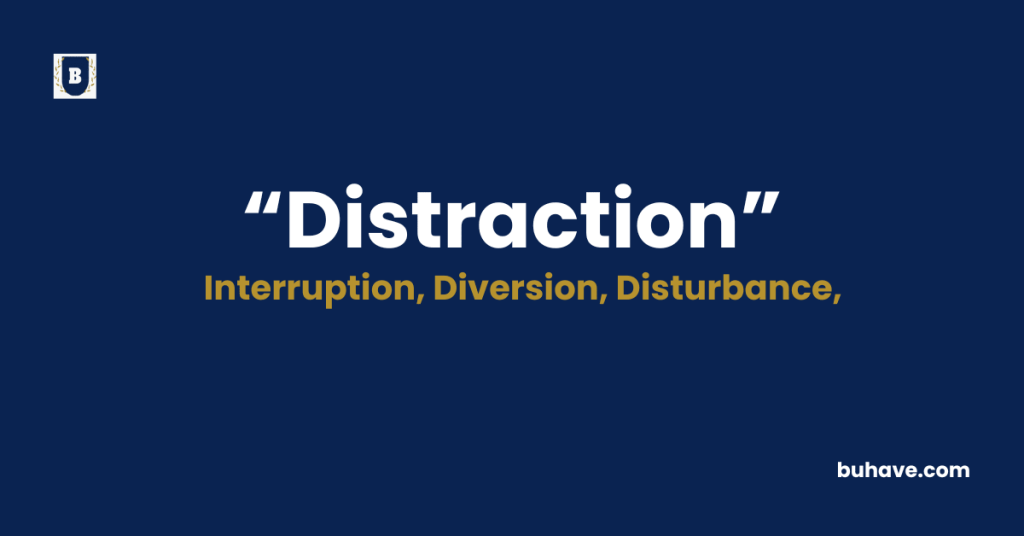The word ‘Distraction’ (Noun) refers to something that draws attention away from what one is doing or thinking about. In this guide, you’ll learn the full definition, synonyms, antonyms, etymology, and real-life examples of how to use ‘Distraction’ correctly in sentences.
Distraction Explained in Depth
A complete and detailed guide to the word ‘Distraction’ including meaning, definition, examples, etymology, synonyms, and antonyms.
Meanings of Distraction
Distraction means an interruption that diverts attention away from a task or focus. It can be external, like noise or movement, or internal, like wandering thoughts or emotions.
Definition
Distraction is defined as a thing that prevents someone from concentrating on something else or the process of diverting attention. It may be temporary or ongoing, intentional or accidental.
Etymology
The word “distraction” comes from the Latin dis- (apart) and trahere (to draw), forming distractio, which referred to drawing away the mind. It entered Middle English from Old French distraction in the 15th century.
Example Sentences
- The constant notifications on his phone became a major distraction from work.
- She played music in the background to avoid mental distraction while studying.
- He used humor as a distraction from his anxiety.
Distraction Synonyms
- Interruption
- Disturbance
- Diversion
- Interference
- Disruption
- Detour
- Intermission
- Deviation
- Break
- Obstacle
Distraction Antonyms
- Focus
- Concentration
- Attention
- Absorption
- Engagement
- Mindfulness
- Fixation
- Awareness
- Purpose
- Clarity
FAQs about Distraction
Here are some frequently asked questions (FAQs) about the word “Distraction”
1. What does “distraction” actually mean?
“Distraction” means anything that diverts attention from a task or focus, whether external or internal.
2. Are all distractions bad?
Not necessarily. Some distractions can provide mental breaks and improve productivity or creativity when managed properly.
3. What causes distraction?
Distractions can be caused by external factors (like noise, screens, or people) or internal factors (like stress or wandering thoughts).
4. How can I reduce distractions?
You can reduce distractions by creating a quiet workspace, turning off notifications, setting priorities, and practicing mindfulness.
5. Is multitasking a form of distraction?
Yes, multitasking often leads to divided attention and reduces overall focus, making it a common form of distraction.

















